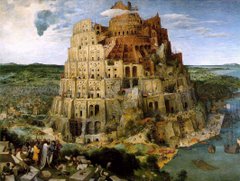As most of the contributors to this blog know, the Political Theory Workshop here is having a special meeting next week to discuss the nature of our field (or discipline, or vocation, or common pursuit, or past-time, depending on how you look at it). First- and second- year theorists have been asked to think about answers to the questions
"What is political theory?" and "What's the point of Political Theory?", which will then be discussed by the full company there present.
Now, a number of us are going to be expected to come up with, and share, answers to these questions; others of us don't have to, but would have something valuable to say about them. So I'm just going to throw the comments section to this post open, as a forum for (perhaps) developing and test-driving ideas to share in the workshop -- or continuing (or rather anticipating) the discussion outside of the workshop, among a somewhat different group of people. (The answers to the question are supposed to be 3-5 minutes, which seems like a roughly blog-post-like length of time -- unless it's a blog post by me).
If no-one else says anything, I might (or I might just let it die); but for the time being, there are no pronouncements as to the nature and purpose of our field from me.
Subscribe to:
Post Comments (Atom)

1 comment:
Good idea, Josh.
I don't find the question "What is political theory?" all that interesting, if all it's asking us to do is summarize what political theorists study. (My similarly uninteresting answer is that most political theorists or thinkers of interest to political theorists attempt to evaluate and critique political and social institutions and the attempts of past thinkers.)
A more interesting question is how political theorists defend their claims, if any of them are defensible. My view is that Rawls was basically right. Demonstrating coherence or incoherence, suitably defined, among the claims made by a political theory is the only legitimate way of defending its truth. I also think that this method, correctly construed, is also the only method by which one makes progress in philosophy and mathematics in general.
What else is there to say?
Post a Comment